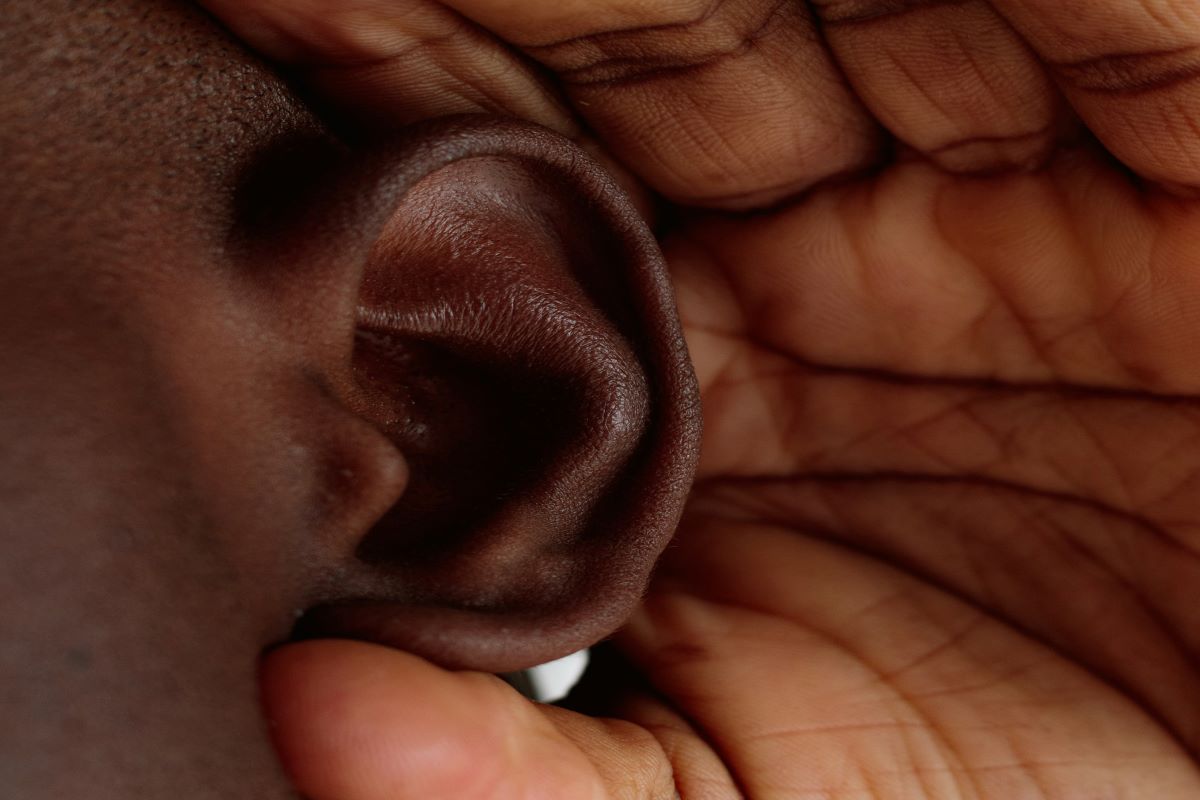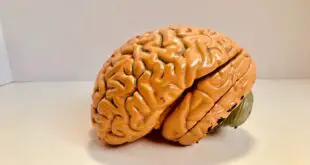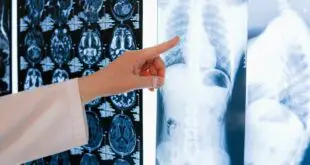Tinnitus is a condition where you keep hearing your own ears. You may hear a constant buzzing sound that will not go away, no matter what you do. If you currently have Tinnitus, you may wonder if there is a way to cure it. Can Tinnitus go away?
In general, Tinnitus does go away naturally, as quickly as a few hours. Certain steps can be taken to help expedite the process well. However, in some cases, Tinnitus may be permanent, and the best thing for these people is to employ strategies to help manage the symptoms.
This article discusses if Tinnitus can go away and what you can do to help speed up the process. If the Tinnitus is permanent, we also discuss how to manage Tinnitus in situations such as sleeping and exercises to help manage the symptoms better.
How Does Tinnitus Start?
Tinnitus can be triggered by many reasons, from something as simple as excess ear wax, or ear infection, to an underlying medical condition. Exposure to loud noises may also trigger temporary Tinnitus that may go away after a few days.
Tinnitus can be triggered by many reasons, which is why it affects up to 20% of the adult population worldwide. Some symptoms can be as simple as having excess ear wax or something as serious as nerve disease.
Excess Earwax
Tinnitus can be caused by an ear canal clogged with wax, which changes how sound travels through the ear. Clearing your earwax usually solves this problem.
Exposure To Loud Noises
Overly loud noises, such as at the workshop or concert, may hurt the inner ear and cause the ringing that we associate with Tinnitus. Be especially careful when using headphones or earplugs to listen to music. Always wear ear defenders when you are in a noisy place.
You may like this article: Why Do Gums Bleed When Flossing?
Infected Ears
At times, you can get an infection in your ears, be it inner, middle, or in the canals. Ear infections can also alter the shape and how sound travels through the ear, resulting in buzzing sounds.
Side effects of medicines
Some medicines are known to trigger Tinnitus. Speak to your doctor if a particular medication triggers Tinnitus attacks on your ears.
Meniere’s Disease
Meniere’s disease is a condition where the pressure in the fluid system in your inner ear changes. It causes a number of symptoms, such as Tinnitus, balance problems, and headaches. Tinnitus is often one of the first signs.
Head And Neck Injury
Tinnitus can also be caused by recent head and neck trauma. Usually, after injury, your head or neck may have some inflammation, which can cause an imbalance in the pressure in your ear, resulting in tingling in the ears. You may want to get a CT scan on your head to confirm this.
Plaque In The Arteries
You may want to think about this if you have higher than usual cholesterol. If cholesterol builds up in the tiny blood vessels in the inner ear, it can lead to a general loss of hearing or ringing in the ears.
Hearing Loss
As you lose your hearing ability, you may start to hear phantom sounds in your ear. This may trigger you to think you have Tinnitus. Visit an audiologist to confirm this issue when you can.
Blood Pressure Spikes
You may notice Tinnitus when your blood pressure spikes. When the blood pressure increases, it pushes the blood through the vessels at a high rate. This can sometimes be heard as a whooshing sound in the ears.
Tumor
Sometimes, as tumors grow, they press on the nerves, altering or interrupting the way your nervous system and your brain work. This may trigger Tinnitus as well.
Can Tinnitus Go Away On Its Own?
In general, Tinnitus will go away on its own when you address the problems that triggered it. It could be common to see Tinnitus of unknown origin also go away. However, Tinnitus could also be permanent and, in that situation, may need lifelong management.
In many cases, Tinnitus may come as an effect of something. It could be an action you have just performed or a recently developed medical condition.
For example, you may have developed Tinnitus the next day after attending a loud concert, or your Tinnitus may have come about due to high blood pressure. In cases like these, usually, Tinnitus will go away once the underlying triggers have been removed.
In the earlier case, simply stopping exposure to loud sounds for the next few days should get rid of the Tinnitus. For the latter, exercise and blood pressure medicine should control blood pressure and stop triggering Tinnitus.
However, there is Tinnitus that is idiopathic (unknown) in origin, which means there is nothing much you can do to treat it aside from managing the symptoms. At times, Tinnitus of this nature may go away by itself. However, Tinnitus can also be a permanent condition, requiring lifelong management.
Can I Treat Tinnitus?
There is no medication to treat Tinnitus. However, you can do things to either help with the healing process or at least manage the symptoms so you can have a better quality of life. You can also treat Tinnitus indirectly by removing the underlying issues that triggered it.
There is no medication for Tinnitus, which means you may not have a magic pill to swallow to help you get out of the constant buzzing sound in your ears.
You, however, still have a few options up your sleeve to treat Tinnitus and get rid of it. First, you can try to identify the underlying conditions that triggered Tinnitus. For example, if your high blood pressure is causing Tinnitus, you may be able to remove it once you manage to get your blood pressure down to normal.
However, suppose you cannot pinpoint the origin of your Tinnitus. In that case, it may be idiopathic (unknown) in origin, which means you may need to figure out a management strategy to live with the symptoms.
At the same time, you may also perform some steps to encourage natural healing and hope that your Tinnitus will disappear.
If the symptoms do not disappear after some time, perhaps it is best to accept that your Tinnitus may be permanent. You may need to adopt habits that help with lifelong management of the condition.
What Can I Do To Heal From Tinnitus?
Although there are no medications for Tinnitus, there are many actions you can perform to help or at least manage Tinnitus. These usually range from resolving underlying issues that trigger the Tinnitus to adopting strategies to reduce the negative impact of Tinnitus in your life.
Ear Canal Cleaning
In some cases, Tinnitus can be gotten rid of as quickly as cleaning the ear canal and removing any excess earwax.
Ear Protection
If you have Tinnitus, you want to avoid being in situations that may trigger it to be worse. Always wear over-the-ear hearing protection if you anticipate loud noises, such as working with machinery, shooting guns, or playing loud music.
Volume Control
When you listen to music through headphones at a loud volume, it can cause hearing loss. You may trigger your Tinnitus as well.
Hearing Aid
Suppose your Tinnitus originates from hearing loss from noise or from getting older. In that case, hearing aids might help to reduce the buzzing sound since you can now hear outside sounds better.
Experiment With Your Medicine
Suppose you believe your Tinnitus attacks seem to come from some medications you are taking. In this case, you may want to have a chat with your doctor to see if you can get some alternative drugs instead. You may also reduce your dosage.
Treat Underlying Medical Conditions
If your Tinnitus is triggered by an underlying medical condition, see if you can cure or at least manage them. If high blood pressure is starting your Tinnitus, see if managing it can help. If you have a tumor causing Tinnitus, see if surgery and removal of the tumor can relieve your Tinnitus symptoms.
You may like this article: How Many Teeth Does An Adult Have?
Retraining Therapy For Tinnitus (TRT)
In TRT, an audiologist will work with you on covering up the buzzing sounds and also some counseling sessions. You may be required to wear a device in your ear that helps cover up the sounds of Tinnitus. Over time, TRT may help you hear your Tinnitus less and worry less about it.
White Noise Machines
White noise machines make natural noises, such as sounds of the forest, river, rain, or sea. These sounds may help to drown out the buzzing sound in your ears. Fans, humidifiers, dehumidifiers, and air conditioners in the bedroom can also make white noise. Turn them on at night, as they may help make your Tinnitus less noticeable at night when you sleep.
Less Alcohol, Caffeine, and Tobacco
When used without much control, these things can affect blood flow and potentially worsen your Tinnitus.
Managing Stress
Stress can make Tinnitus worse. Relaxation therapy or exercise may help eliminate some of your stress. Consider Yoga, meditation, or maybe Pilates as a start.
White Noise Machines
White noise machines make natural noises, such as sounds of the forest, river, rain, or sea. These sounds may help to drown out the buzzing sound in your ears. Fans, humidifiers, dehumidifiers, and air conditioners in the bedroom can also make white noise, which may help make your Tinnitus less noticeable at night.
 Being Human
Being Human




